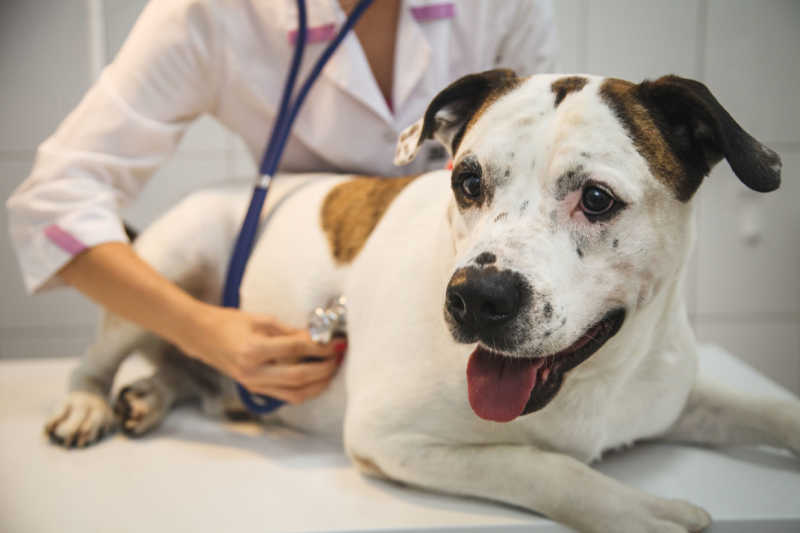Table of Contents
Heart disease in pets is a serious condition that requires early detection and proper management to ensure the health and well-being of your furry friends. Recognizing the signs of heart disease in pets can help you seek timely veterinary care and improve the prognosis for your pet. This guide outlines the ten warning signs of heart disease to watch for in dogs and cats.

1. Coughing
Coughing, especially a persistent or chronic cough, is one of the most common signs of heart disease in pets. It can indicate fluid buildup in the lungs or pressure on the airways caused by an enlarged heart. If your pet has a persistent cough, consult your veterinarian for an evaluation. For more on pet coughing, visit Cornell Feline Health Center Heart Disease.
2. Difficulty Breathing
Difficulty breathing, also known as dyspnea, is another critical sign of heart disease. You may notice your pet breathing rapidly, struggling to breathe, or showing signs of distress. These symptoms can be due to fluid accumulation in the lungs or chest cavity. Immediate veterinary attention is required if your pet has difficulty breathing. For more on breathing issues, see PetMD Congestive Heart Failure.
3. Lethargy and Weakness
Heart disease can lead to reduced oxygen and nutrient delivery to the body, resulting in lethargy and weakness. Your pet may tire easily, show reluctance to exercise, or appear generally less active. If you notice a significant change in your pet’s energy levels, consult your veterinarian. For more on lethargy, visit AKC Symptoms of Heart Disease.
4. Loss of Appetite
A loss of appetite can be a sign of many health issues, including heart disease. If your pet is eating less or refusing food altogether, it may indicate discomfort or underlying health problems. Persistent loss of appetite should be evaluated by a veterinarian. For more on appetite loss, see WebMD Why Dogs Stop Eating.
5. Weight Loss
Unexplained weight loss can be a sign of heart disease in pets. As the condition progresses, the body may not absorb nutrients properly, leading to weight loss despite a normal diet. If your pet is losing weight without any changes in diet or exercise, seek veterinary advice. For more on weight loss, visit Cornell Feline Health Center Weight Loss.
6. Swelling
Swelling, particularly in the abdomen (ascites) or limbs (edema), can indicate heart disease. This occurs due to fluid retention caused by poor circulation and heart function. If you notice swelling in your pet, consult your veterinarian for an evaluation. For more on swelling, see VCA Hospitals Edema in Dogs.
7. Exercise Intolerance
Pets with heart disease often show exercise intolerance, meaning they tire quickly and are unable to perform physical activities they once enjoyed. If your pet becomes easily exhausted or refuses to exercise, it may indicate a heart problem. For more on exercise intolerance, visit AKC Exercise Intolerance.
8. Collapse or Fainting
Collapse or fainting, also known as syncope, can occur due to insufficient blood flow to the brain, often caused by heart disease. If your pet experiences episodes of collapse or fainting, seek immediate veterinary attention. For more on syncope, visit VCA Hospitals Syncope in Dogs.
9. Abnormal Heart Sounds
During a routine check-up, your veterinarian may detect abnormal heart sounds, such as murmurs or irregular heartbeats. These can be indicators of heart disease and may require further diagnostic tests to determine the underlying cause. For more on abnormal heart sounds, visit PetMD Heart Murmurs.
10. Restlessness
Restlessness, especially at night, can be a sign of heart disease. Pets may have difficulty finding a comfortable position to sleep and may pace or appear anxious. This behavior is often due to discomfort or difficulty breathing while lying down. For more on restlessness, see AKC Restlessness in Dogs.
Conclusion on Signs of Heart Disease in Pets
Recognizing the signs of heart disease in pets is crucial for early detection and effective management. If you notice any of these symptoms in your pet, seek veterinary care promptly. Early intervention can significantly improve the quality of life and prognosis for pets with heart disease. For more pet health tips, check out our Pet Care Guide.
FAQs on Signs of Heart Disease in Pets
What causes heart disease in pets?
Heart disease in pets can be caused by genetic factors, age, obesity, poor diet, and infections. Some breeds are more predisposed to heart conditions than others.
Can heart disease in pets be treated?
While heart disease in pets cannot always be cured, it can be managed with medication, lifestyle changes, and regular veterinary care to improve quality of life.
How can I prevent heart disease in my pet?
Maintaining a healthy diet, regular exercise, routine veterinary check-ups, and keeping your pet at a healthy weight can help prevent heart disease.
What are the early signs of heart disease in dogs?
Early signs of heart disease in dogs include coughing, difficulty breathing, lethargy, and reduced tolerance for exercise. If you notice these signs, consult your veterinarian.
Is heart disease more common in certain breeds?
Yes, certain breeds are more prone to heart disease. For example, Cavalier King Charles Spaniels and Boxers are more susceptible to specific heart conditions.
What should I do if my pet collapses?
If your pet collapses, seek immediate veterinary attention. Collapse can be a sign of a serious heart condition or other critical health issue.










